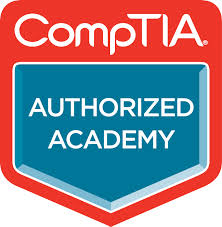Science, Technology, Engineering and Mathematics (STEM)

Upgrade Your Future
Students with an area of interest of Science, Technology, Engineering and Mathematics (STEM) will gain an understanding of how the world works through research, analysis and application. Students within the Technology area will be ready to meet industry standards with skills acquired to develop software, troubleshoot hardware issues, and improve security and system integration. Students focused in the Engineering area will be able to implement change by creating solutions that bridge theory to real-world applications. Students focused in the Science and Math areas will cultivate intellectual advancement, develop new models/theories and analyze data to problem solve within their discipline.
SCF’s Associate in Science (A.S.) Degree and Certificate programs provide practical training and critical thinking skills to help you succeed today and advance tomorrow.
The Associate in Arts degree (A.A.) is for students who, upon graduation from SCF, transfer to a public or private college/university to earn a bachelor’s degree in a specific area of study. Academic advisors are available to assist with program planning so that the proper academic program prerequisites are taken prior to successful transfer to the college/university from SCF.
Computer Science Degrees
Associate in Science Degrees
Certificates
State College of Florida is a proud Academy Partner of CompTIA- the voice of Information Technology



Engineering Technology
The purpose of this program is to prepare students for employment in engineering technology and related occupations. The program also provides updated training for incumbent workers employed as production technicians in manufacturing, electronics, industrial design, biomedical and related industries.
Associate in Science Degrees
Certificates
Construction Management Technology
SCF’s Construction Management Technology program is designed to prepare students for employment as construction project managers, project estimators, superintendents, schedulers and/or construction purchasing agents. The focus of the program is on providing students with broad transferrable skills, understanding and demonstration of the basic elements of construction management with an environmentally conscientious, sustainable, “green” building perspective.
Computer Science Labs
The objective of the Business & Technology Computer Labs is to provide a study environment for students with access to computer tools. The resources include: word processing, spreadsheet, presentation, development software, engineering software, and Internet applications. There are two types of labs within the Department: Open Labs and Teaching Labs. Open Labs are available to all students registered at SCF. Included is one Multi-Use Teaching Lab are available for instructors to reserve for hands-on training.
Lab Rules:
No food or drink is allowed in the lab.
You will be asked to leave and may lose lab use privileges for the rest of the semester if:
- You are found viewing, creating or transmitting any offensive, obscene or indecent images, data or other material, or any data capable of being resolved into obscene or indecent images or material.
- You attempt to download programs for the purpose of installing them on the workstations hard drive.
- You are found viewing, creating or transmitting defamatory or copyright-protected material.
- You are using the Internet for financial gain, commercial or illegal activities.
Building is equipped with wireless technology throughout
6 Multimedia Instructor Classrooms:
These labs are utilized for scheduled day-to-day instruction and presentations. Each classroom is equipped with a full multimedia instructor station including an Elmo document camera, DVD/VHS recorder, computer, and either a Smart Board or Symposium. There are at least 30 student desks in each room
5 Teaching Labs:
These labs are used for scheduled day-to- day class presentations. All are equipped with full multimedia instructor stations. These labs provide instructors with a facility where they can take their students for hands on exercises and access to web teaching tools.
The labs are as follows
AutoCAD/Accounting teaching lab:
The lab is equipped with full multimedia instructor station, 20 student hands on computer stations, an 11×17 laser printer, a plotter and soon a 3Dprinter.
The purpose of this lab is to provide students instruction in engineering software and financial accounting software. Accounting software includes Microsoft Office Accounting 2009. Engineering software includes a full version of Autodesk Architectural software and SolidWorks. When classroom is not in use, this lab is used as an open lab for engineering students to work on assignments that utilize this software. (Room 18-214)
Network Security Services Technology lab:
The lab is equipped with full multimedia instructor station and 10 student hands on computer stations and technology work room for building and repair of computers. (Room 18-203)
The purpose of this lab is for day-to- day class presentations. In addition, to provide students with the equipment to have hands on experiences simulating security on large networks and complicated network server/switched environments. Lastly, it is to provide students with a work area to design, build and repair PC’s in a hands on environment
Electronics Engineering Technology Lab:
The lab is equipped with full multimedia instructor station, Smart Board, and 18 student hands on computer stations. (Room 18-221)
The purpose of this lab is for day-to -day class presentations in various engineering technologies. In addition, to provide students hands on training with the equipment to design, simulate, construct, and troubleshoot electronic circuits.
Financial Accounting/Computer Programming/Keyboarding Technology Lab:
The lab is equipped with full multimedia instructor station and 30 student hands on computer stations. (Room 18-202)
The purpose of this lab is for day-to -day class presentations. In addition, to provide students with the hands on experience in creating computer programs, utilizing accounting software and practicing keyboarding skills.
Multi-Use Computer Teaching Lab:
The lab is equipped with full multimedia instructor station, 20 student hands on computer stations, and room for addition 10 laptops stations. Room contains a mobile cart available for additional students. (Room 18-218)
Instructors reserve this room for hand on labs for lecture/lab classes. Mostly used for CGS 1000 classes, this room may be reserved by other classes from Business and Technology department as well as other departments if available.
1 Open Computer lab:
Hours: Monday thru Thursday 8AM to 8PM and Friday 8AM to 4PM
The lab is equipped with 20 student hands on computer stations and a scanner.
The purpose of this lab is to provide students an open lab environment where they can come 13 hours a day to do technical class assignments. The computers have all the software taught in all the Business and Technology classes (excluding engineering). In the center is a laptop table where students can come and plug in their laptops and work on class work. It also creates an environment where groups and advance students can work together to study. The lab is staffed with a lab assistant who can tutor and counsel students on CGS 1000, and any computer related class work. Our student assistants help students with the computer related aspects of creating presentations and research papers. (Room 18-215)
2 Teaching Labs
1 Computer Teaching lab equipped with full multimedia instructor stations and 28 student hands on computer stations. (Room 400-408)
The purpose of this lab is to provide for day-to -day class presentations and a facility where BAT instructors can take their students for hands on exercises and access to web teaching tools.
During off hours this lab shares as an OPEN LAB
The purpose of this lab is to provide students an open lab environment where they can come 13 hours a day to do technical class assignments. The computers have all the software taught in all the Business and Technology classes (excluding engineering). In the center is a laptop table where students can come and plug in their laptops and work on class work. It also creates an environment where groups and advance students can work together to study. The lab is staffed with a lab assistant who can tutor and counsel students on CGS 1000, and any computer related class work. Our student assistants help students with the computer related aspects of creating presentations and research papers
1 Computer Teaching lab equipped with full multimedia instructor stations and a mobile cart with 23 laptops for student hands on computer experience. (Room 400-418)
The purpose of this lab is for day-to -day class presentations. In addition, this lab is utilized to provide our business students with hand on lab capabilities for business software.
1 Computer Teaching Lab equipped with full multimedia instructor station and 20 student hands on computer stations. (Rooms 202)
The purpose of this lab is to provide for day-to -day class presentations and a facility where instructors can take their students for hands on exercises and access to web teaching tools.
1 Multimedia Classroom
(Shared with Natural Science) These labs are utilized for scheduled day-to-day instruction and presentations. Each classroom is equipped with a full multimedia instructor station including an Elmo document camera, DVD/VHS recorder, computer, and either a Smart Board or Symposium. There are at least 30 student desks in each room.



